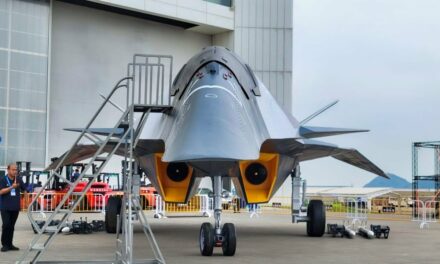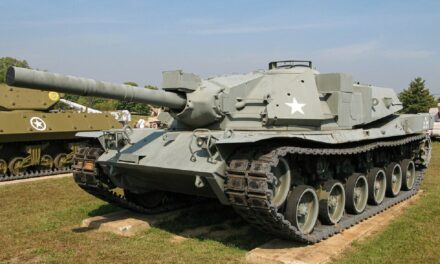We support our Publishers and Content Creators. You can view this story on their website by CLICKING HERE.
Key Points: A Conservative government under Pierre Poilievre could significantly shift Canada’s defense policy, emphasizing realism and restraint over global ambitions. Poilievre’s focus on meeting NATO’s 2 percent GDP defense spending target, reforming procurement, and addressing Arctic security aims to modernize Canada’s defense capabilities.
-Priorities include acquiring submarines, enhancing NORAD with the U.S., and resolving the CAF’s recruitment crisis.
-While the Trudeau government made some progress, chronic underfunding and delays have left Canada vulnerable.
-Implementing Poilievre’s vision faces challenges, including fiscal constraints and bureaucratic resistance, but success could reestablish Canada as a reliable ally and strengthen its position in global security.
Canada’s Defense Revival: How Poilievre Could Transform the Military
The defeat of the Trudeau government in the next federal election, should it materialize, could mark a critical turning point for Canada’s defense policy. The Conservative Party, under the leadership of Pierre Poilievre, has signaled intentions to move toward a more realist and restrained approach to defense—a departure not only from the Trudeau Liberals but also from the Conservative Party’s own prior shortcomings in this domain. While political rhetoric often falls short of meaningful change, a Poilievre government has the potential to lay the groundwork for addressing Canada’s longstanding military deficiencies.
Under Prime Minister Justin Trudeau, Canadian defense policy has been defined by rhetorical commitments and underwhelming execution. Despite repeated pledges to meet NATO’s 2 percent of GDP defense spending target, Canada consistently lags behind its allies, with expenditures hovering around 1.4 percent. This chronic underfunding has left the Canadian Armed Forces (CAF) overstretched, underequipped, and unprepared for emerging security challenges in the Arctic, North Atlantic, and North Pacific—regions of critical importance to Canada’s security.
Trudeau’s tenure has also been marked by an inability to modernize procurement processes, leaving key capabilities like submarines, fighter jets, and Arctic infrastructure outdated or nonexistent. While the Trudeau government deserves credit for committing to replace the aging CF-18 fleet with F-35s and enhancing NORAD’s early-warning systems, these efforts have been marred by delays and cost overruns. The Liberal government’s tendency to prioritize progressive social policies over core defense requirements has further alienated Canada’s allies, particularly the United States, which sees Canada as a weak link in NATO’s collective defense framework.
Beyond the funding shortfalls, the Trudeau government’s strategic priorities have often appeared misaligned with Canada’s geographic and geopolitical realities. While engaging in peacekeeping initiatives and international development projects has a place in Canadian foreign policy, these efforts have come at the expense of investments in critical defense capabilities. This has left Canada vulnerable in key areas, such as Arctic sovereignty and maritime security, where adversarial activity is intensifying.
The Conservative Party’s policy pronouncements suggest a pivot toward a more realist and restrained defense posture. Unlike the Trudeau Liberals, whose defense strategy has often been driven by a desire to project Canada as a moral exemplar on the global stage, the Poilievre Conservatives appear to recognize the limits of Canadian power and the importance of prioritizing core national interests. A realist approach would focus on bolstering Canada’s contributions to collective defense in NATO and enhancing sovereignty in the Arctic. Recent Conservative statements have emphasized the need to meet or exceed NATO’s 2 percent spending target—a goal that aligns with Canada’s treaty obligations and addresses long-standing concerns from allies. Such a shift would signal to Washington and other NATO members that Canada is serious about its commitments, thereby strengthening its credibility within the alliance.
Canada’s Prime Minister Justin Trudeau sending his congratulations to 2021 graduates as a part of Carleton University’s 2021 Graduation Celebration released on Wednesday, June 23, 2021.
A restrained approach would prioritize defense investments in areas where Canada can make meaningful contributions, rather than overextending its limited resources. For instance, the Conservatives have expressed interest in acquiring modern submarines capable of operating in the Arctic and the North Pacific, regions where Canadian sovereignty faces growing challenges from Russia and China. This focus on maritime and Arctic capabilities reflects an understanding of Canada’s geographic imperatives and the need to secure its maritime approaches. The emphasis on realism is particularly significant in light of Canada’s proximity to the United States and the shared defense responsibilities through NORAD. Strengthening continental defense would not only enhance security for Canada but also solidify its strategic partnership with its most important ally.
To succeed, a Conservative government will need to address several longstanding deficiencies. Procurement reform must be a top priority. Cutting bureaucratic red tape, ensuring faster timelines, and holding contractors accountable for delays and cost overruns will be essential to the rapid acquisition of critical platforms such as the F-35s, submarines, and Arctic patrol vessels. The Conservatives have signaled their intent to overhaul this process, but success will require sustained effort and political will.
Arctic infrastructure is another area in dire need of attention. The region’s melting ice caps have opened new maritime routes, attracting the attention of Russia and China. To assert sovereignty and deter potential adversaries, Canada must invest in icebreakers, radar systems, and forward-operating bases. The Conservatives have indicated that Arctic security will be a priority, reflecting the growing recognition of its strategic importance. Similarly, personnel and recruitment challenges must be tackled head-on. The CAF faces a severe recruitment and retention crisis, with thousands of positions unfilled and low morale among service members. Improving pay, benefits, and working conditions is essential to rebuilding Canada’s armed forces. Investing in training programs and streamlining the path for new recruits will also be necessary to ensure the CAF can meet future challenges.
Modernizing NORAD will be equally critical. Canada’s joint defense obligations with the United States demand urgent attention, particularly in light of emerging threats such as hypersonic missiles and long-range bombers. The Conservatives have committed to working closely with Washington to enhance early-warning systems and missile defense capabilities. Strengthening this bilateral relationship will be essential to ensuring North American security in an increasingly volatile world.
The Conservatives’ emphasis on prioritizing defense in regions where Canada has clear strategic interests—the Arctic, North Pacific, and North Atlantic—marks a welcome departure from overambitious global missions. This regional focus aligns with Canada’s limited resources and its geographic imperatives, enabling more efficient allocation of defense spending. Their commitment to defense realism also represents a break from the previous Conservative government under Stephen Harper. While Harper’s tenure saw some important investments, such as the National Shipbuilding Strategy, it also suffered from similar procurement delays and an overall neglect of personnel and readiness issues. The Poilievre Conservatives appear to recognize these past failures and are charting a more pragmatic course.
However, the implementation of this vision will face significant challenges. Achieving the 2 percent spending target will require difficult trade-offs in a fiscal environment constrained by high debt levels and competing domestic priorities. Reforming the procurement process will necessitate overcoming entrenched bureaucratic resistance. Rebuilding the CAF will take time, and addressing personnel shortages and modernizing equipment are long-term endeavors that

President Donald Trump’s meeting with Canadian Prime Minister Justin Trudeau this week covered a host of topics: the need for swift passage of USMCA, solutions to the opioid crisis affecting both nations, defending human rights in the Western Hemisphere, and more
will not yield immediate results. The Poilievre government will need to manage public expectations and demonstrate incremental progress to maintain support for its defense agenda.
Canada will also need to navigate an increasingly complex international environment. From balancing relations with the United States and NATO allies to addressing potential provocations from Russia and China in the Arctic and Pacific, the Conservatives will need a clear and cohesive strategy. This will involve not only military investments but also diplomatic engagement to ensure Canada’s voice is heard on the global stage.
The transition from a Trudeau-led government to a Poilievre-led Conservative government could herald a new era for Canadian defense policy. By adopting a realist and restrained approach, the Conservatives have the opportunity to address many of the deficiencies that have plagued Canada’s armed forces and defense strategy for decades. Their focus on NATO commitments, Arctic security, procurement reform, and personnel revitalization reflects a pragmatic understanding of Canada’s national interests and geopolitical realities. However, turning this vision into reality will require sustained political will, effective governance, and a clear-eyed recognition of the challenges ahead. If successful, the Conservatives could restore Canada’s credibility as a reliable ally and secure its position in an increasingly uncertain world. A renewed focus on realistic priorities and tangible results will not only strengthen Canada’s defense but also reaffirm its role as a committed partner in global and regional security.
About the Author: Dr. Andrew Latham
Andrew Latham, Ph.D., a tenured professor at Macalester College in Saint Paul, Minnesota. He is also a Senior Washington Fellow with the Institute for Peace and Diplomacy in Ottawa and a non-resident fellow with DefensePriorities, a think tank in Washington, DC. This first appeared in RealClearDefense.

 Conservative
Conservative  Search
Search Trending
Trending Current News
Current News 




